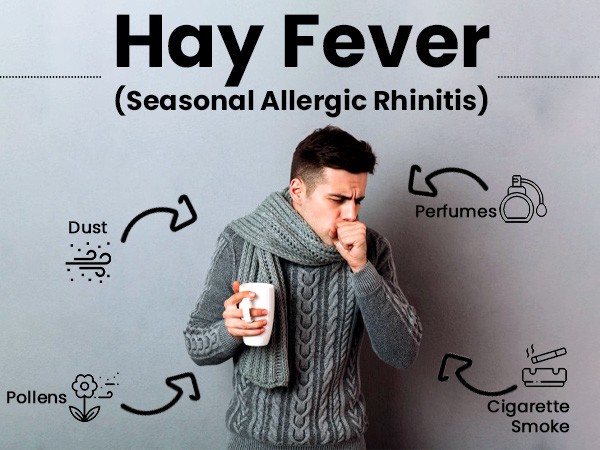
Sometimes, a person can get inflammation inside of their nose and this is an allergic rhinitis issue or hay fever. Point to be noted here is that allergic rhinitis usually occurs when the immune system overreacts to the allergens present in the air like pollen, dust mites etc.
How allergic rhinitis is caused?
Allergens are the main cause for allergic rhinitis. It is noteworthy that when a person with a predisposition to allergies inhales the allergens then their immune system would identify these allergens as harmful. To combat them, the immune system would release certain chemicals such as histamines. Inflammation of nasal passages would occur due to the immune response.
There are common allergens that can cause allergic rhinitis in us and these are pollen from trees, grass etc, dust mites present in beds, carpets etc, pet dander, saliva urine and mould spores etc.
There are several symptoms associated with allergic rhinitis issues like sneezing, runny nose, watery eyes, itching, nasal congestion, cough, fatigue etc.
Diagnosis:
For proper diagnosis and treatment of allergic rhinitis issues, it is necessary to consult a doctor without fail. It must be noted that the doctor would perform a physical examination plus review the medical history and conduct an allergy test to know about specific allergens.
Treatments:
It is possible to treat allergic rhinitis at home by doing steam inhalation, saline nasal irrigation etc. Maintaining a healthy lifestyle by avoiding allergen triggers, using air purifiers and HEPA filters etc would lower the exposure to allergens.
Using antihistamines:
When antihistamines are used, histamine release would be blocked and itching and sneezing etc would be reduced.
Using decongestants:
When decongestants are used, nasal congestion would get reduced by shrinking swollen blood vessels in the nasal passages.
Allergy shots or immunotherapy:
To desensitise the immune system over time, allergen specific immunotherapy[y would be recommended.
Lifestyle changes:
This could be done by avoiding tobacco smoke, managing stress, staying hydrated etc
Certain foods:
There are certain foods that could curb allergies in us. These foods are onions, peppers, berries etc having quercetin, intake of kiwi fruit rich in vitamin C, intake of pineapple containing bromelain.


